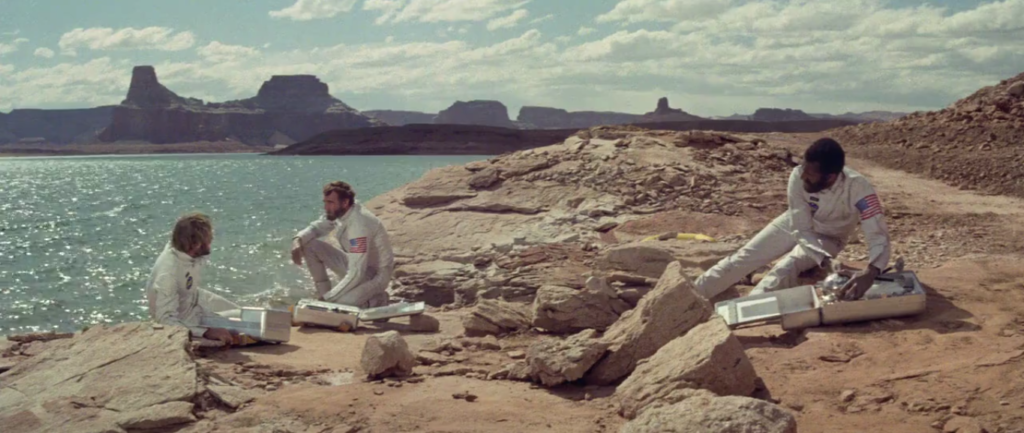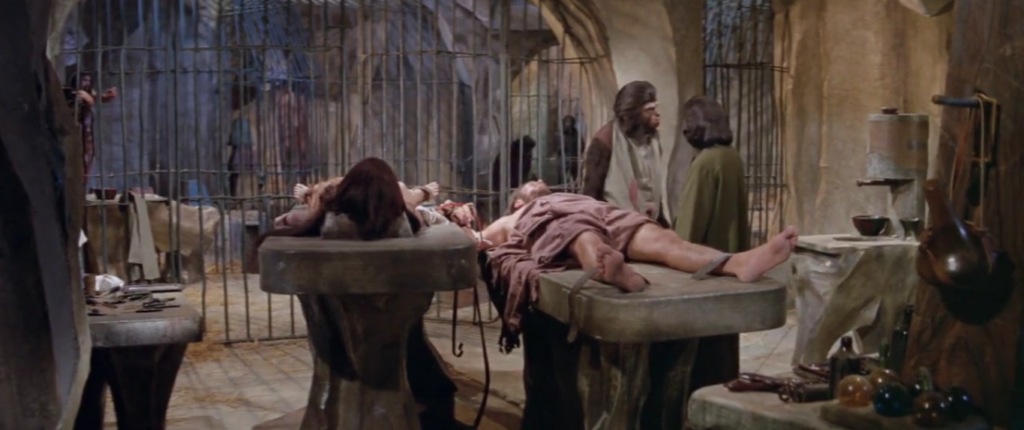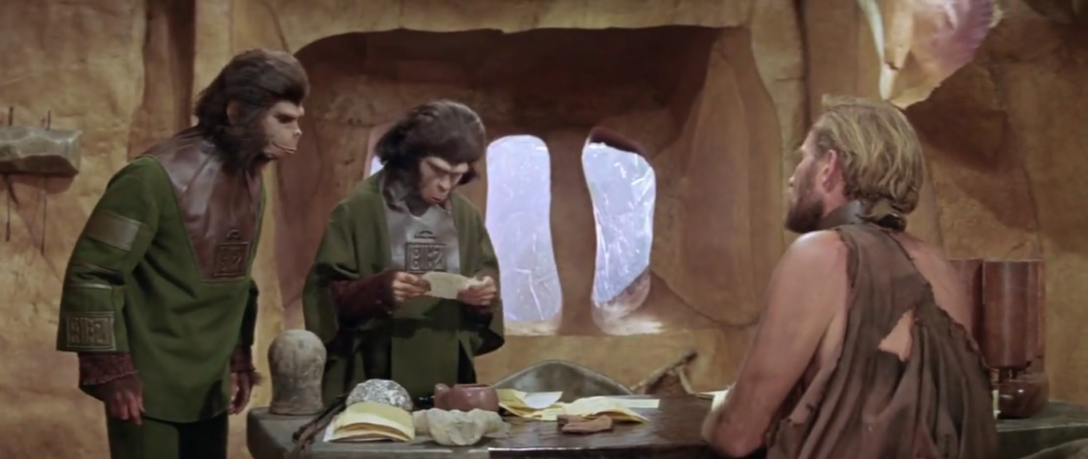Humans really are an awful bunch, aren’t we? We fight, we steal, we beat each other down, and we never seem to learn from our mistakes. Of course, we don’t want to admit that we’re that bad. No, we just want to stick our head in the sand and ignore the truth. Sometimes it’s up to works of art and media to hold a mirror up to us and make us confront our ugly reflections. One work that does an excellent job of this is 1968’s Planet of the Apes.
A science-fiction classic directed by Franklin J. Schaffner, Planet of the Apes Charlton Heston, Roddy McDowall, Kim Hunter and Maurice Evans, the film asks us as a society to evaluate the way we perceive and treat those who are different to us, and what methods we use to continue to support those inequalities in our society.
The film begins with the philosophising of Taylor (Charlton Heston), the captain of an unidentified space craft that is returning from a mission far across the stars. Taylor does a lot of philosophising in this film, and from the outset it is clear that he is a cynical person hoping that somewhere across the galaxy there is a species better than man, one that doesn’t “[make] war against his brother” and doesn’t just generally treat everyone and everything like crap. Taylor continues to echo these sentiments for the duration of the film.
After entering hypersleep to travel back to earth, Taylor and the rest of the crew are rudely awakened by the ship crashing into a lake on a strange, alien planet, nearly two thousand years into the future. Only the men of the crew survive; Taylor, Landon (Robert Gunner) and Dodge (Jeff Burton). They are forced to wander through the desert of this world until they eventually stumble upon civilization – but not one that they’ve ever encountered before.

As you can probably gather from the title, this is no regular planet, it’s a planet full of apes; apes that are, for all intents and purposes, human. These apes behave exactly like humans – they walk, they talk, they enforce societal prejudices. The apes hate humans, believing them to be an inferior species that deserves to be wiped out. They hunt them and they study them, and they flatly refuse to believe that they may share any genetic link with them. Humans in their society are stupid, worthless savages – it’s outlined in the Sacred Scrolls that form their religion, so it must be true.
Landon and Dodge are disposed of by the apes but Taylor survives, being imprisoned and studied and eventually discovered to be able to speak – something that all of the apes except for Zira (Kim Hunter), an animal psychologist and her fiancé Cornelius (Roddy McDowall), an archaeologist – believe to be completely impossible. Dr Zaius (Maurice Evans), the head of both science and religion in the ape society, is determined to ensure that no scientific discoveries can be made that would disprove anything outlined in the Sacred Scrolls. He believes that it is important that humanity remain subjugated, especially considering their dark past (a past discovered by Taylor in one of the most classic plot twists of all time).
The apes are created using the revolutionary prosthetic work of John Chambers. This prosthetic work allows the actors quite a lot of facial movement and expression, making their performance much more realistic than just some guy in a cheap gorilla mask. It’s the fact that they can be so expressive that makes the message of the film hit home even more effectively, because even though they are apes, they express themselves like humans, right down to their smile. Most of the performances in the film are pretty good, but the standout is definitely Kim Hunter as Zira, the animal psychologist sympathetic to Taylor’s plight. She is able to convey so much emotion through just her eyes, and we can’t help but instantly like and support her from nearly the first moment she appears onscreen. Then there’s Charlton Heston, whose performance is pretty much the exact opposite – sure, he is conveying a lot of emotion, but he is conveying it loudly and dramatically at the expense of pretty much all of the scenery in the room.
The society that the apes live in is so engaging because it’s entirely believable and simultaneously recognisable and unrecognisable. The village that the apes live in is very fleshed-out; they have their own customs that are recognisable, such as funerals, they have their own societal structure, represented with the clothing each type of ape wears. The architectural design of the village is also done well, favouring earthy tones and structures made of rock. Another thing that helps create a strong sense of “otherness” in the film is the score, which honestly used to frighten me when I was younger due to its absolute weirdness.

However, it’s probably obvious the thing that Planet of the Apes does best is present to us a moral issue in a way that is both easy for us to understand and never overly preachy. The closest the film gets to preaching to the audience is in some of Taylor’s philosophizing, but it’s never too much to hinder any engagement with the film. The issues that the film presents are as timely now as they were back then, and it is a shame that we can look at society today and realise we have made virtually no progress.
You should definitely watch Planet of the Apes. I’ve always loved the film and for me it is the best one in the entire franchise. It is well-made with a strong message – it’s just a shame we haven’t learned anything from it.
BEST BITS
- The prosthetic effects. It blew my mind as a kid how realistic-looking the apes were, and to be honest it still does now.
- The human hunt scene is intense and frightening and does a great job of instantly establishing the relationship between apes and humans.
- The final plot twist.
WORST BITS
- Some of the acting is distractingly bad.
- When Cornelius and Zira kiss it really shows the limitations of those great prosthetics – it’s like two birds pecking each other.
FINAL RATING: 8/10
More like this: Should You Watch Blade Runner?
